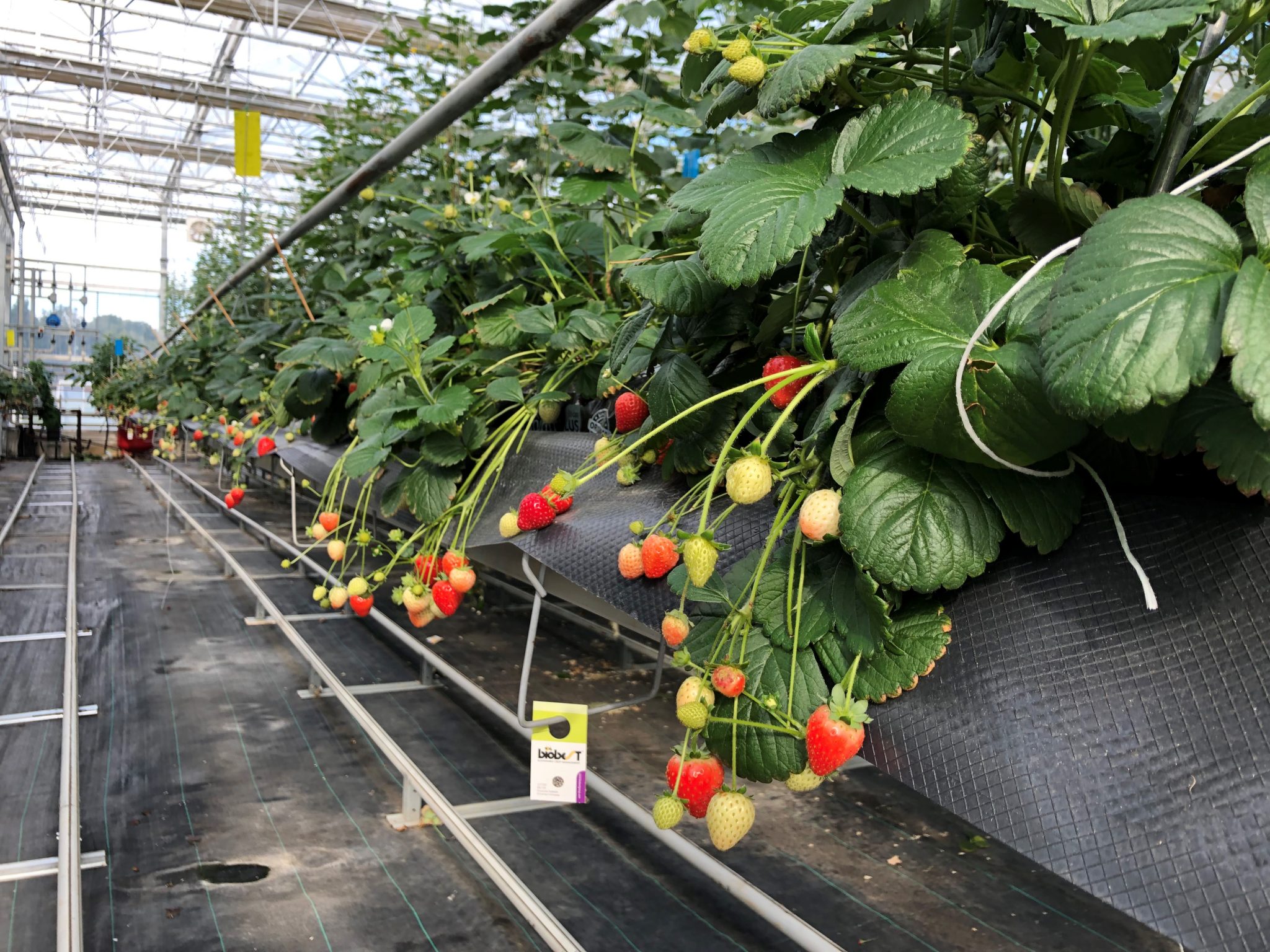Recognising the need to re-assess current production systems for soft fruit, Elsoms is working with the Natural Light Growing Centre (NLG) – a facility run by partners CHAP (Crop Health & Protection) and RIPE at the University of Warwick Life Sciences.
This commercial-scale greenhouse is clad in ETFE (ethylene tetrafluoroethylene), which unlike glass transmits full spectrum sunlight including UVA and UVB into the growing area. To test the potential benefits for strawberry production, Elsoms has been trialling one of its new hybrid everbearing varieties, Estavana.
Elsoms Technical Coordinator, Claire Taylor, said: “We launched three strawberry varieties earlier this year, one of which was Estavana. These are bred by Dutch F1-hybrid strawberry specialists, ABZ Seeds, then propagated in the UK for the commercial market.
“As plants are supplied disease-free, this offers strong commercial benefits for growers and with this in mind, we wanted to look at how else we could build on that, to help to improve the resilience of the UK supply chain.
“After being introduced to the NLG Centre through our relationship with the University of Warwick, we thought it would be a great place to start in assessing current growing practices, and how agri-tech might make a difference.”
Due to its ability to transmit full spectrum sunlight, the ETFE greenhouse can potentially help to understand how factors such as crop health resilience and overall yield – as well as marketable qualities such as taste and colour – could be enhanced. As a strong disease-free variety, Elsoms has found Estavana grows well in this environment, continuing to bear fruit well into October.
This is something Claire and the team are keen to investigate further. “We have a limited strawberry season in the UK, so the concept of extending this by combining strong plant breeding with an innovative growing environment is really quite exciting.
“To explore this further, we’d like to look at one of our other varieties, Soraya, as this can offer a winter harvest given the correct conditions. Of course, we’d also need to consider the role of additional energy-efficient LED lighting to make this possible, but ETFE provides an excellent start.”
With an extended season for UK-grown strawberries, this could reduce the reliance on imports, future-proof the country’s supply chain, and address wider food chain issues such as reducing its carbon footprint and associated emissions.
CHAP Innovation Sector Lead, Martin Squire, said: “The work Elsoms is doing at the NLG is a great example of what CHAP is all about – collaborating with industry to address sector-wide challenges and using agri-tech innovation to find viable solutions.
“The potential to extend the home-grown strawberry season is of real value to growers and consumers.”
For more information about the benefits of growing in natural light under ETFE go to NLG or if you are interested in running a project of your own or have any other queries, please send us an email using the enquiries form at the bottom of our homepage.












